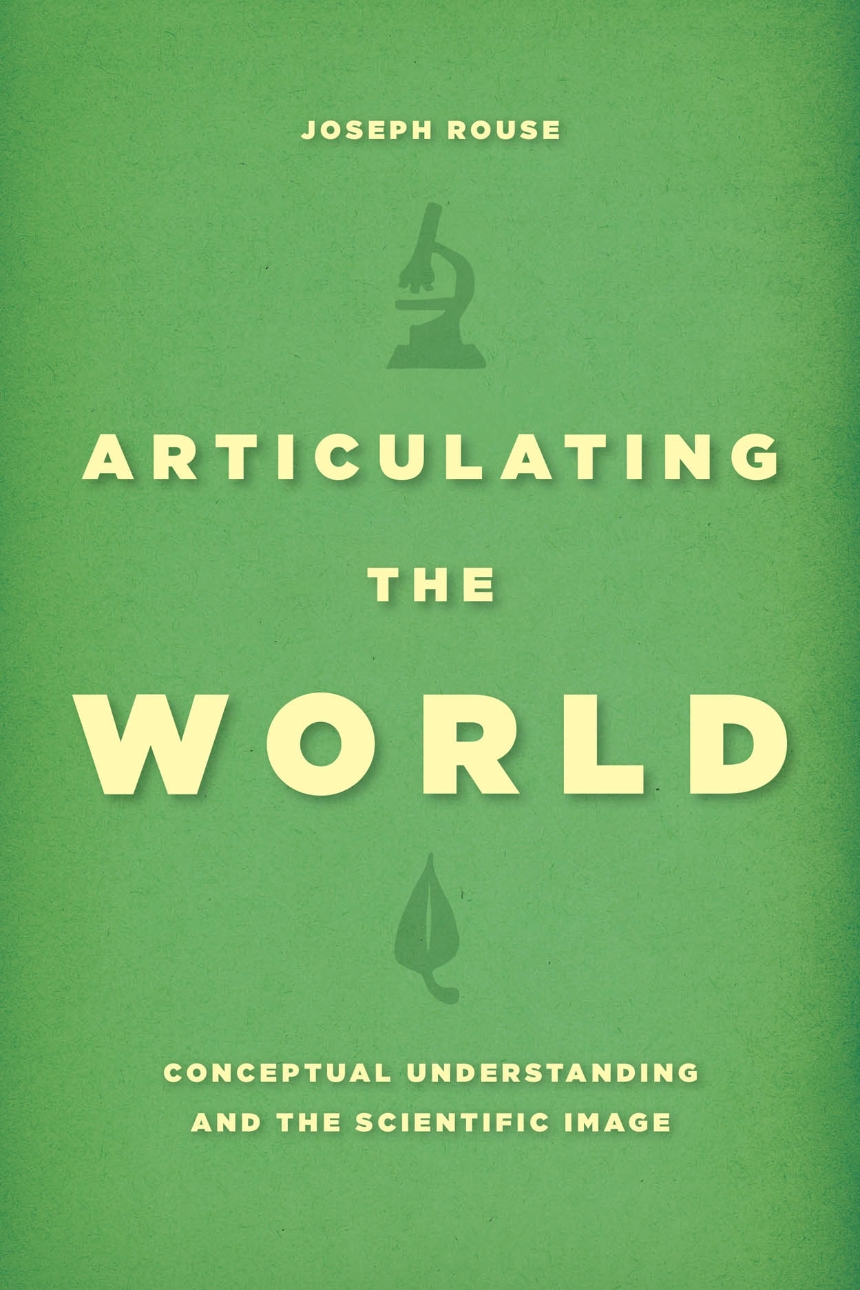Articulating the World
Conceptual Understanding and the Scientific Image
9780226293844
9780226293677
9780226293707
Articulating the World
Conceptual Understanding and the Scientific Image
Naturalism as a guiding philosophy for modern science both disavows any appeal to the supernatural or anything else transcendent to nature, and repudiates any philosophical or religious authority over the workings and conclusions of the sciences. A longstanding paradox within naturalism, however, has been the status of scientific knowledge itself, which seems, at first glance, to be something that transcends and is therefore impossible to conceptualize within scientific naturalism itself.
In Articulating the World, Joseph Rouse argues that the most pressing challenge for advocates of naturalism today is precisely this: to understand how to make sense of a scientific conception of nature as itself part of nature, scientifically understood. Drawing upon recent developments in evolutionary biology and the philosophy of science, Rouse defends naturalism in response to this challenge by revising both how we understand our scientific conception of the world and how we situate ourselves within it.
In Articulating the World, Joseph Rouse argues that the most pressing challenge for advocates of naturalism today is precisely this: to understand how to make sense of a scientific conception of nature as itself part of nature, scientifically understood. Drawing upon recent developments in evolutionary biology and the philosophy of science, Rouse defends naturalism in response to this challenge by revising both how we understand our scientific conception of the world and how we situate ourselves within it.
416 pages | 1 table | 6 x 9 | © 2015
Biological Sciences: Evolutionary Biology
Language and Linguistics: Philosophy of Language
Philosophy: Philosophy of Mind
Physical Sciences: History and Philosophy of Physical Sciences
Reviews
Table of Contents
Introduction
1 Naturalism and the Scientific Image
Part One Conceptual Understanding as Discursive Niche Construction
2 What Is Conceptual Understanding?
3 Conceptual Understanding in Light of Evolution
4 Language, Social Practice, and Conceptual Normativity
5 Two Concepts of Objectivity
Part Two Conceptual Articulation in Scientific Practice
6 Scientific Practice and the Scientific Image
7 Experimental Practice and Conceptual Understanding
8 Laws and Modalities in Scientific Practice
9 Laboratory Fictions and the Opening of Scientific Domains
10 Scientific Significance
Conclusion
11 Naturalism Articulated
Epilogue Naturalism and the Contingency of the Space of Reasons
References
Acknowledgments
Index
1 Naturalism and the Scientific Image
Part One Conceptual Understanding as Discursive Niche Construction
2 What Is Conceptual Understanding?
3 Conceptual Understanding in Light of Evolution
4 Language, Social Practice, and Conceptual Normativity
5 Two Concepts of Objectivity
Part Two Conceptual Articulation in Scientific Practice
6 Scientific Practice and the Scientific Image
7 Experimental Practice and Conceptual Understanding
8 Laws and Modalities in Scientific Practice
9 Laboratory Fictions and the Opening of Scientific Domains
10 Scientific Significance
Conclusion
11 Naturalism Articulated
Epilogue Naturalism and the Contingency of the Space of Reasons
References
Acknowledgments
Index
